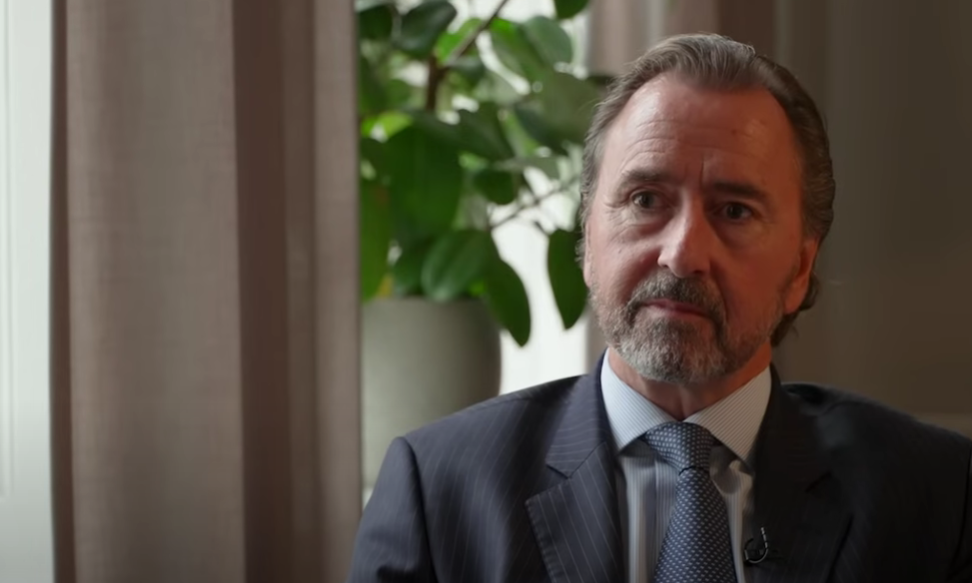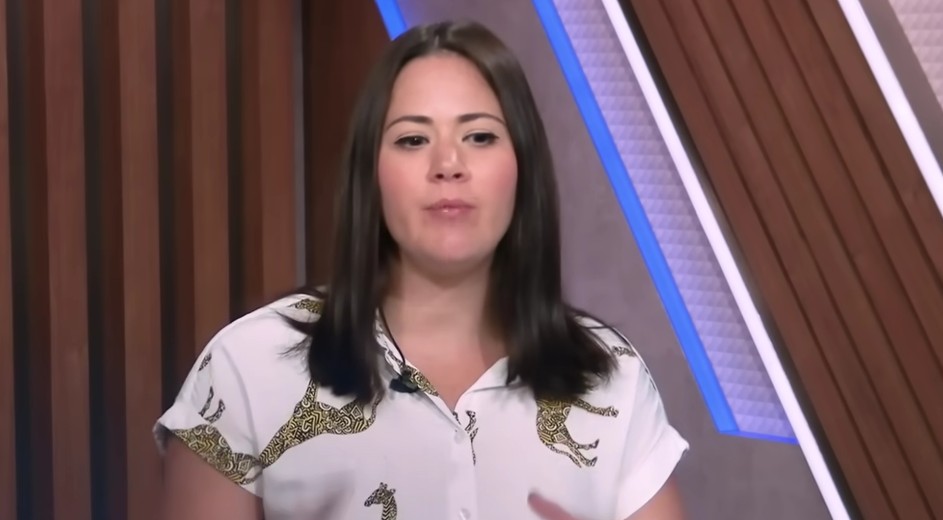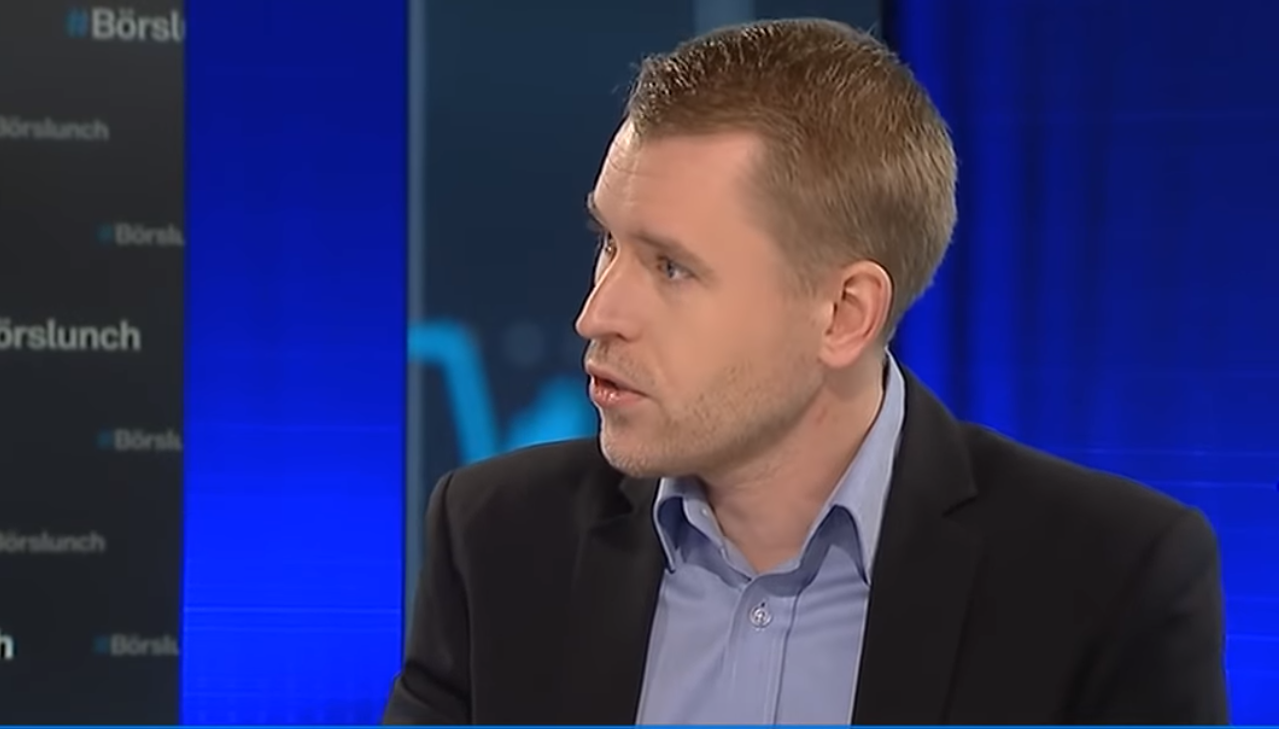Marknadsnyheter
Kallak Iron Ore Project Update
14 July 2021
Beowulf Mining plc
(“Beowulf” or the “Company”)
Kallak Iron Ore Project Update
Beowulf (AIM: BEM; Spotlight: BEO), the mineral exploration and development company, provides an update on the Kallak Iron Ore Project (“Kallak”).
Mining Study
A contract has been awarded to Carci Mining Consultants Limited (“Carci”) to conduct a Mining Study (“Study”) on Kallak. The purpose of the Study is to develop an open pit design and mining schedule based on the upgraded Mineral Resource Estimate (“MRE”, RNS announcement dated 25 May 2021) for a 25-year life-of-mine operation at Kallak. Previously, Carci supported the MRE by completing an open pit optimisation study.
The output from the Mining Study will provide better definition for mining equipment selection, and product types, production volumes and specifications, which will support project development, discussions with The Swedish Transport Agency (Trafikverket), the Inlandsbanan (the Inland Railway) and emerging fossil-free steel producers in Norrbotten. The Study is due to be completed by the end of August 2021.
Exploitation Concession
Further to the UNESCO letter dated 2 June 2021 and the CEO’s letter to Minister Baylan dated 14 June 2021, on 18 June 2021 the Ministry of Enterprise and Innovation (the “Ministry”) invited the Company to submit any comments regarding the UNESCO letter to the Ministry by 6 September 2021. A few days later the Swedish Prime Minister lost a ‘vote of no confidence’ in the Swedish Parliament.
On 9 July 2021, it was confirmed that Prime Minister Stefan Löfven had succeeded in reforming a government and would continue in office, with no ministerial changes. Minister Baylan has remained in office and taken on additional responsibility for rural affairs.
During the last few months, Minister Baylan has said that a decision on Kallak will be made once UNESCO comments are received. This was also stated in a debate in Parliament with Lars Hjälmered (Interpellation 2020/21:216 Tillståndsprövningen gällande Kallak och Laver),
where he said that “vi skickar det här ärendet vidare till UNESCO så att vi får deras synpunkter och därefter kan gå till beslut. Då är det färdigberett, och då är också min bedömning att det beslut som regeringen fattar håller rättsligt” (Translation: “we are forwarding this matter to UNESCO so that we can receive their views and then take a decision. Then it is ready, and then my assessment is that the decision made by the government is legal”).
Kurt Budge, Chief Executive Officer of Beowulf, commented:
“We are moving forwards with the Mining Study, the outputs of which will enable us to advance discussions on both logistics for Kallak production, and product volumes, specifications and attributes with potential customers.
“Kallak is ideally positioned with respect to the HYBRIT and H2GreenSteel projects and can similarly leverage renewable power to ensure the integrity of a fossil-free supply chain in Norrbotten.
“We are engaging with our legal and technical advisers and will be submitting comprehensive comments on the UNESCO letter to the Ministry in due course. We hope to give Minister Baylan, once and for all, the confidence he needs to support the award on an Exploitation Concession for Kallak. The Company has already questioned UNESCO’s jurisdiction over Kallak.
”Importantly, UNESCO does not conclude that Kallak cannot be mined. It is an easy recommendation to suggest the Company could provide more information, but the checks and balances already exist in Sweden’s laws and permitting processes, granted they need to function effectively, for everything that needs to be done, to get done.
“In November 2019, the Company’s lawyers submitted a Concluding Statement (“Statement”) to the Swedish Government. The purpose of the Statement was not to submit any new facts in the Kallak case, as all necessary and relevant facts have already been established as part of the application process. Rather, the Statement summarised the circumstances relevant to a judicial review of whether an Exploitation Concession should be awarded.
“The Statement stressed that, as has previously been demonstrated by the Company, and acknowledged by the County Administrative Board (”CAB”) for the County of Norrbotten, the establishment of a mine at Kallak would have significant positive effects on the local economy: creating jobs, generating tax revenues for Jokkmokk municipality, and stimulating and diversifying the business sector in Jokkmokk. In so doing, Kallak would help solve the problems Jokkmokk is facing, a lack of investment in new enterprise and job creation, and a declining and ageing population, which is putting a burden on Jokkmokks Kommun that it cannot afford.
“Speaking recently to the Mayor of Jokkmokk, the Municipality’s financial situation is not improving and Jokkmokk’s need for investments and jobs remains as acute as ever.
“The Statement noted that neither the Reindeer Herding Impact Assessment, nor the Environmental Impact Assessment concluded that mining operations at Kallak would threaten the existence and livelihoods of local reindeer herding communities. Furthermore, the Statement highlights the similarities between Kallak and available case law, which support the approval of the Concession.
“Based on these arguments, the Statement concluded that an Exploitation Concession for Kallak should be awarded. The Statement was submitted 20 months ago and met with silence from the Government.
“With added responsibility for rural affairs Minister Baylan will no doubt be doing all he can to encourage economic development in struggling municipalities such as Jokkmokk. While at the same time, giving investors in downstream fossil-free steel production the certainty that upstream supply of locally produced high quality iron ore, such as Kallak’s 71.5 per cent iron concentrate, will be available to feed their projects.
“I look forward to providing shareholders and investors with further updates.”
About Kallak
The Kallak iron ore deposit is located approximately 40 kilometres (”km”) west of Jokkmokk in the County of Norrbotten, Northern Sweden, 80 km southwest of the major iron ore mining centre of Malmberget, and approximately 120 km to the southwest of LKAB’s Kiruna iron ore mine. The first Exploration Licence for Kallak was awarded by the Mining Inspectorate of Sweden in 2006.
In April 2013, the Company applied for an Exploitation Concession for Kallak North (the ”Concession”) and in October 2015, the Mining Inspectorate recommended to the Swedish Government that the Concession be awarded. The Company is still waiting on the Swedish Government to take a decision.
Kallak Iron Ore Project – MRE and Exploration Target Upgrade
RNS dated 25 May 2021
https://polaris.brighterir.com/public/beowulf_mining_plc/news/rns/story/x8q5k9x
- An additional 19 million tonnes (”Mt”) of iron mineralisation equating to a 12.5 per cent increase in the resource.
- Measured and Indicated Mineral Resource of 132 Mt grading 27.8 per cent iron (”Fe”).
- Inferred Mineral Resource of 39 Mt grading 27.1 per cent Fe.
The definitions of Measured, Indicated and Inferred Resources, as well as Reserves, as used in the MRE, conform to the definitions and guidelines of the PERC Reporting Standard, 2017.
Market Leading Potential
RNS dated 17 September 2020
https://polaris.brighterir.com/public/beowulf_mining_plc/news/rns/story/x8l7kjr
- Testwork on Kallak ore has produced an exceptionally high-grade magnetite concentrate at 71.5 per cent Fe with minimal detrimental components.
- This would make Kallak the market leading high-grade product among known current and planned future producers.
- The next best magnetite product is LKAB’s (the state-owned Swedish iron ore company), which produces magnetite fines (”MAF”) with a target specification of 70.7 per cent Fe and is regarded as unique, until now, due to its exceptionally high iron content.
- Kallak magnetite concentrate would reduce the carbon footprint of traditional steel manufacturing, improve energy efficiency in any downstream process and reduce waste. Magnetite has inherent energy content, which ultimately results in lower energy demand for steel manufacturing when compared to current common practice.
- Globally, the feedstock for steelmaking is 80 per cent hematite and 20 per cent magnetite. The demand for high-quality feedstock and therefore magnetite should increase as producers look to protect the environment by improving energy efficiency, minimizing waste and the impact of waste disposal.
Economic Potential
In response to the Government’s request, in the middle of 2015, for the County Administrative Board for the County of Norrbotten (the ”CAB”) to provide comments on the national economic assessment for Kallak, the CAB’s findings were as follows:
- Mining is economically relevant and the Kallak North project generates economic benefits at local, regional and national levels, including direct and indirect jobs, tax revenues, and more broadly across mining equipment and services sectors in Sweden.
- The Concession Area applied for by the Company creates no conflicts where national interests are considered.
- The Concession is designated as an Area of National Interest (”ANI”) for minerals.
- The Company should work with communities that could be affected by the development of a mining project, in order to eliminate or mitigate any impacts, including reindeer herders and Sami villages.
- The Company should consider in its ongoing studies the potential impact of its mining activities on tourism and transport infrastructure.
In 2017, Copenhagen Economics produced a ’Big Picture’ study for Kallak (”the Kallak Study”):
The Kallak Study built on the work carried out by the Company and others, including the 2015 independent socio-economic study initiated by Jokkmokks Kommun, completed by consultants Ramböll, which in its findings concluded that a mining development at Kallak would create direct and indirect jobs, increase tax revenues and slow down population decline, and the 2010 study by the Economics Unit of Luleå University of Technology, ’Mining Investment and Regional Development: A Scenario-based Assessment for Northern Sweden’.
Copenhagen Economics had previously reviewed the attractiveness of the Swedish mining sector on a number of parameters, including licensing and regulation, commissioned by the Swedish Agency for Growth Policy Analysis, part of the Government of Sweden.
The Kallak Study demonstrated that the economic effect of Kallak is ’not just about a mine’. A mining project would economically transform Jokkmokk and support other major capital expenditure and economic activity e.g. Inlandsbanan, Luleå Hamn, Vattenfall etc, spreading the benefits, through Norrbotten and beyond.
When it comes to Kallak’s economic effect on Jokkmokk, the Kallak Study highlights were as follows:
- A mining operation at Kallak has the potential to create 250 direct jobs and over 300 indirect jobs in Jokkmokk, over the period that a mine is in operation.
- These jobs could be sustained over a period of 25 years or more, if the Kallak South deposit is mined after the Kallak North deposit, and further deposits at Parkijaure can be defined.
- The Company will seek to establish a ’Task Force’ with Jokkmokks Kommun and local employment agencies, so that between now and the start of operations, plans are developed and implemented to make sure as many as possible jobs are available to people living in Jokkmokk.
- Kallak has the potential to generate SEK 1 billion in tax revenues, considering the case where 70 per cent of the mine’s workforce are based locally, with annual tax revenues of SEK 40 million over a 25-year mine life.
- These tax revenues would help to develop and sustain public services and infrastructure in Jokkmokk, which are at risk due to a lack of new investment and job creation in the community, a declining population, and an ageing population.
About Beowulf Mining plc
Beowulf Mining plc (”Beowulf” or the ”Company”) is an exploration and development company, listed on the AIM market of the London Stock Exchange and the Spotlight Exchange in Sweden. The Company listed in Sweden in 2008 and is approximately 73.4 per cent owned by Nordic shareholders.
The Company’s purpose is to be a responsible and innovative company that creates value for our shareholders, wider society and the environment, through sustainably producing critical raw materials needed for the transition to a Green Economy and to address the Climate Emergency.
The Company’s asset portfolio is diversified by commodity, geography and the development stage of its various projects and features metals in demand.
Competent Person (”CP”)
Mr Howard Baker of BGS is a resource geologist with 25 years’ experience covering multiple commodities from early-stage exploration through to definitive feasibility studies. Mr Baker is the Managing Director of BGS and previously worked for the International Mining Consultancy, SRK Consulting (UK) Ltd (”SRK”) where he was employed for eight years as a Principal Consultant and Practise Leader. In his time at SRK, he focussed on the management of Mineral Resource Estimates with a strong focus on technical quality management and compliancy to international reporting codes. In addition, he played a key role in advising on suitable exploration protocols and drill programmes and effectively assisted clients in the development of numerous large-scale projects. Prior to his time at SRK, Mr Baker lived and worked in Australia, working for Rio Tinto, BHP Billiton, Iluka Resources and Anaconda Nickel.
Mr Baker was educated in the United Kingdom, being a dual British and Australian citizen. He is a Chartered professional fellow (#224239) of the Australasian Institute of Mining and Metallurgy.
Mr Baker has extensive global experience in the geology and Mineral Resource Estimation of iron ore projects and also worked as a mine geologist and specialist resource geologist in the iron ore Pilbara district of Western Australia.
Mr Baker has reviewed the technical information included in this announcement and approves the disclosure of technical information in the form and context in which it appears, in his capacity as a CP as required under the AIM rules.
Enquiries
| Beowulf Mining plc | |||
| Kurt Budge, Chief Executive Officer | Tel: +44 (0) 20 7583 8304 | ||
| SP Angel(Nominated Adviser & Broker) | |||
| Ewan Leggat / Stuart Gledhill / Adam Cowl | Tel: +44 (0) 20 3470 0470 | ||
| Blytheweigh | |||
| Tim Blythe / Megan Ray | Tel: +44 (0) 20 7138 3204 | ||
Cautionary Statement
Statements and assumptions made in this document with respect to the Company’s current plans, estimates, strategies and beliefs, and other statements that are not historical facts, are forward-looking statements about the future performance of Beowulf. Forward-looking statements include, but are not limited to, those using words such as ”may”, ”might”, ”seeks”, ”expects”, ”anticipates”, ”estimates”, ”believes”, ”projects”, ”plans”, strategy”, ”forecast” and similar expressions. These statements reflect management’s expectations and assumptions in light of currently available information. They are subject to a number of risks and uncertainties, including, but not limited to , (i) changes in the economic, regulatory and political environments in the countries where Beowulf operates; (ii) changes relating to the geological information available in respect of the various projects undertaken; (iii) Beowulf’s continued ability to secure enough financing to carry on its operations as a going concern; (iv) the success of its potential joint ventures and alliances, if any; (v) metal prices, particularly as regards iron ore. In the light of the many risks and uncertainties surrounding any mineral project at an early stage of its development, the actual results could differ materially from those presented and forecast in this document. Beowulf assumes no unconditional obligation to immediately update any such statements and/or forecast.
Marknadsnyheter
JRS chefsstrateg Torbjörn Söderberg om börsen framåt

JRS chefsstrateg Torbjörn Söderberg pratar med Jesper Norberg på EFN om börsens väg framåt. Man tar upp värderingar och makro, samt hur han själv väljer att agera.
Marknadsnyheter
Kreditkort skapar problem för USAs konsumenter – CNBC granskar

CNBC tittar närmare på hur kreditkort skapar problem för konsumenterna i USA som får betala räntor på upp till 36 %, och ovanpå det kommer nya avgifter. När det skapar så här stora problem blir det ett problem för ekonomin som helhet, det är inte bara ett individuellt problem.
CNBC granskar kreditkort och problemen de skapar
Vi skrev nyligen om rekordhög belåning hos investerare i USA. Det är samma sak här, när det är så många individer som är så hårt belånade blir det ett problem för hela aktiemarknaden.
Marknadsnyheter
Varför går det så dåligt för Las Vegas?

Det pratas mycket om att Las Vegas har blivit tomt. Det kommer färre besökare både från USA och utlandet, i en sådan omfattning att vägar som förut var fyllda med bilar nu är smidiga att ta sig fram på. De enda som fortsatt verkar komma är affärsresenärerna.
Las Vegas får mycket kritik för att ha blivit för giriga. Hotellen har börjat lägga på alla möjliga konstiga avgifter för att tjäna mer, restaurangerna lägger på avgifter och dessutom har det tillkommit flera nya skatter. Besökarna känner sig lurade.
-
Analys från DailyFX10 år ago
EUR/USD Flirts with Monthly Close Under 30 Year Trendline
-
Marknadsnyheter5 år ago
BrainCool AB (publ): erhåller bidrag (grant) om 0,9 MSEK från Vinnova för bolagets projekt inom behandling av covid-19 patienter med hög feber
-

 Marknadsnyheter3 år ago
Marknadsnyheter3 år agoUpptäck de bästa verktygen för att analysera Bitcoin!
-
Analys från DailyFX12 år ago
Japanese Yen Breakout or Fakeout? ZAR/JPY May Provide the Answer
-

 Marknadsnyheter2 år ago
Marknadsnyheter2 år agoDärför föredrar svenska spelare att spela via mobiltelefonen
-
Analys från DailyFX12 år ago
Price & Time: Key Levels to Watch in the Aftermath of NFP
-
Analys från DailyFX8 år ago
Gold Prices Falter at Resistance: Is the Bullish Run Finished?
-

 Nyheter7 år ago
Nyheter7 år agoTeknisk analys med Martin Hallström och Nils Brobacke

